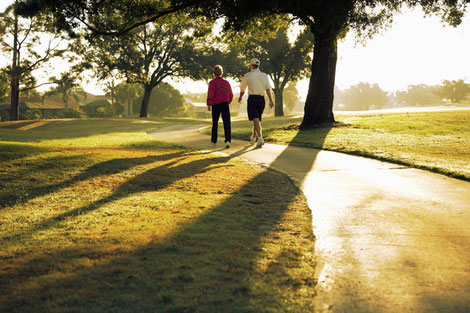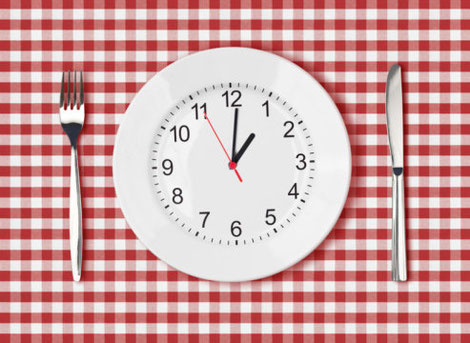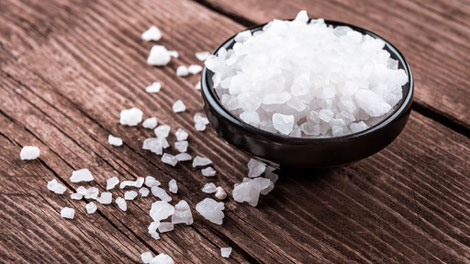
This year it was approximated that commercial airlines carried about four billion passengers worldwide. This makes you think that there are thousands of people in the air traveling at any particular point in time and hence, jet lag, sadly, cannot be avoided. You’ll really know the effects of jet lag especially if you have travelled across various time zones. Exhaustion, dehydration, headaches and nausea are some of the more frequently experienced symptoms. Nevertheless, did you know that there are several naturals hacks that you can adopt to beat jet lag? This is exactly what we will be discussing in this article.
So be it whether you're on a family vacation or work trip, we hope these tips will be useful in helping you beat jet lag and kick off your trip with a bang!
Circadian rhythm - why do we care?
The primary reason we experience jet lag is due to the fact that our bodies find it challenging to swiftly adapt to a different time zone. Why is this so?
Your body’s biological clock is dictated by the sun and runs on a 24-hour cycle called the circadian rhythm. Circadian comes from the latin words “circa” and diem” meaning “around” and “day” respectively. When we travel across time zones this throws our biological clock and physiology off balance which can make us feel tired, under the weather, weak and more susceptible to illnesses. It can take several days, and sometimes weeks, for our bodies to adjust to the new circadian cycle as dictated by the rising and setting of the sun in the new time zone.
There are 2 hormones that are essential for maintaining efficient sleep/wake cycles and the delicate interplay between them. The first is cortisol which has a number of functions, one of which is to fire us up in the morning to get out of bed. The second is melatonin, the sleepy hormone, which rises in the evening causing us to sleep. These 2 hormones are naturally antagonists to each other. When melatonin is high before bed cortisol is low, and vice versa in the morning. Or at least they should be.
So one of the main ways to combat jet lag is to encourage this process to get back on track as quickly as possible when you land in the new timezone.
Sunlight

The first way to do this is to get as much sunlight on your body during waking hours in the new location. Watching the sun rise is perfect for this. If that’s not possible then at least getting out of the house/hotel/villa and going for a 15 minute walk in the morning light would work. This is important because melatonin is suppressed by the occurrence of blue light, from the sun’s ultra violet spectrum hitting the eyelids. So no sunglasses please!
Now if you’re, for example, traveling from Europe to Asia in the winter and about to spend 2 weeks on the beach this is pretty easy. You’ll naturally be getting a lot of natural light as soon as you hit your hotel. However, even if you’re travelling from Asia to Europe in the winter (over Christmas for example) and are covered up walking around outside, you will still get 1000 lux (a measure of illuminance) of light on your eyeballs during an overcast day and this will have a very positive benefit in resetting your internal clock to the new timezone.
Experiments have be done on mice, taking tissue samples from the mice to see how much their internal clocks reset in the presence of natural light. It turns out that it takes about three days to reset their body clocks about half way in the presence of natural light. But you can actually expedite this process even further. How?
Meal timings

It turns out that meal timings are as important as sunlight for letting our bodies know how to adjust our internal clocks to a new timezone. When they did this experiment on mice they found that by sticking rigidly to the times that you normally have your meals in the new timezone you will reset your clock more quickly. For example, if you normally eat breakfast at 7am you want to be getting up to eat your breakfast in the new timezone also at 7am and then similar times for lunch and dinner. So, skipping breakfast when we get back home after a holiday because we’re too busy and have loads of work to do is a bad idea and will set us up for jet lag failure!
Lunch time and meal sizes
It’s quite common in the new timezone to experience an enhanced post-prandial (after meal) crash in the afternoon. That’s not good if you end up falling asleep for 2 to 3 hours in the afternoon and totally screw up your sleep for that evening. To avoid the post prandial crash, stick to a light lunch with veggies, maybe a little protein but low starchy carbs/high energy foods. In the evening, a large dinner will be fine to help you nod off to sleep afterwards.
Exercise or coffee
Melatonin is suppressed in the presence of cortisol. So doing some medium to high intensity exercise first thing in the morning in the new timezone can raise cortisol, wake you up and help you reset your clock. If you don’t have time to exercise you can “biohack” this mechanism by having a shot of espresso. However, don’t overdo it and definitely avoid drinking any caffeinated beverages after midday. Caffeine has a half-life of 6 hours so you want to minimise any in your blood when you go to sleep that night.

Bedtime
At bedtime you want to minimise cortisol as much as possible and maximise melatonin to get the best night's sleep. The best way to minimise cortisol is to avoid stimulants at night: sugar/desserts/high GI foods such as bread/pasta/pizza/tropical fruits, caffeine, alcohol, stressful situations (i.e. work). Do some light reading, yoga, meditation. And then maximise melatonin production by wearing orange goggles once the sun sets: watch this video to find out why.
Grounding

This last one might come off as a bit “woo woo” but it works well whatever you think! Getting your bare feet on the earth, preferably grass (or the beach, or concrete if that’s all that’s available) in the morning is a wonderful way to reset your body’s natural frequency to that of the earth in the new location. As Dave Asprey (the bulletproof coffee guy) says in his new book, Head Strong, “When you go up in an aeroplane, you build up a static charge in your body that slows the mitochondrial function. In other words, the battery in your body doesn’t hold a charge as well because you were disconnected from the earth. Reconnecting with the earth - or a grounding mat if you can’t find any patches of earth - can reduce the feeling of jet lag by allowing you to soak up the earth’s negative ions.”
Indeed this study1 concludes:
“Emerging evidence shows that contact with the Earth—whether being outside barefoot or indoors connected to grounded conductive systems—may be a simple, natural, and yet profoundly effective environmental strategy against chronic stress, ANS dysfunction, inflammation, pain, poor sleep, disturbed HRV, hyper coagulable blood, and many common health disorders, including cardiovascular disease. The research done to date supports the concept that grounding or earthing the human body may be an essential element in the health equation along with sunshine, clean air and water, nutritious food, and physical activity.”
Other health tips...

Not necessarily directly related to jet lag but certainly important:
A. Drink a ton of water on the flight. Flights are very dehydrating. Add a little sea salt to your water to increase the amount of minerals you’ll be absorbing (real celtic sea salt has 80 different trace minerals not just sodium chloride)
B. Don’t eat the plane food. First, it’s radiated toxic garbage (even the business class food) and secondly, you’ll be able to reset your circadian rhythm more easily once you land and start eating again in sync with the new time zone.
C. Pop an oregano pill when you get on the plane and another when you land. We like the extra strong ones from American Wild Foods. Oregano is a powerful natural antibacterial/antifungal/antiviral. You don’t want to be picking up other people’s germs on the plane so pop another one when you land as well.
D. Wear a nostril opening device (like The Turbine) that allows you to get more oxygen on the planes. The air pressure of planes is set to between 10,000 and 15,000 feet (even though they fly much higher) and that decreased amount of oxygen in the air means decreased oxygenated blood flow to your organs and extremities. The better you can breathe the better you’ll feel.
E. Lastly, and this is a BIGGIE, recent research has found that melatonin acts on the pancreas reducing the insulin response and blood glucose clearance when melatonin in high. What does this mean? That when you’re sleepy you are going to clear glucose from the blood more slowly meaning that it is more likely to be converted into fat. i.e. eating late at night, eating during the middle of the night on planes, snacking in the night and eating breakfast too early (within 45 mins to an hour of waking) can increase weight gain.
Conclusion
So, that’s it for the Too Long Didn’t Read (TLDR) who skipped to the bottom and just want the answers here they are!
1. Watch the sunrise (no shades)
2. 15 min walk outside before breakfast (no shades)
3. Exercise medium/high intensity OR have an espresso in the morning (not past midday)
4. Watch the sunset
5. Have a large breakfast, small lunch, large dinner
6. Where blue light blocking goggles when the sun sets
7. Walk barefoot, on grass, outside in the morning for 10 to 20 mins
8. Avoid stimulants in the evening, minimise cortisol
To Your Health, Happiness and Longevity
The Levitise Team
P.S. If you love this blog post then do check out our fortnightly newsletter where you'll get the freshest content on health, nutrition and fitness delivered straight to your inbox. Don't miss out and sign up here with just your name and email.
1. Earthing: Health Implications of Reconnecting the Human Body to the Earth's Surface Electrons, 2012. https://www.ncbi.nlm.nih.gov/pmc/articles/PMC3265077/


Write a comment